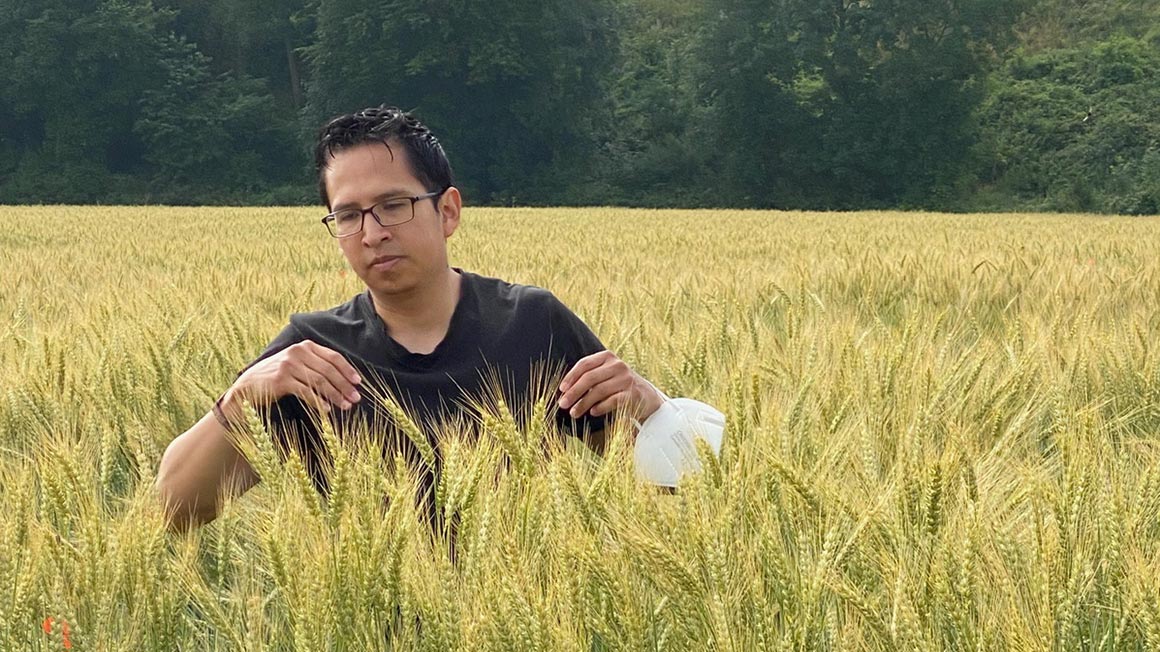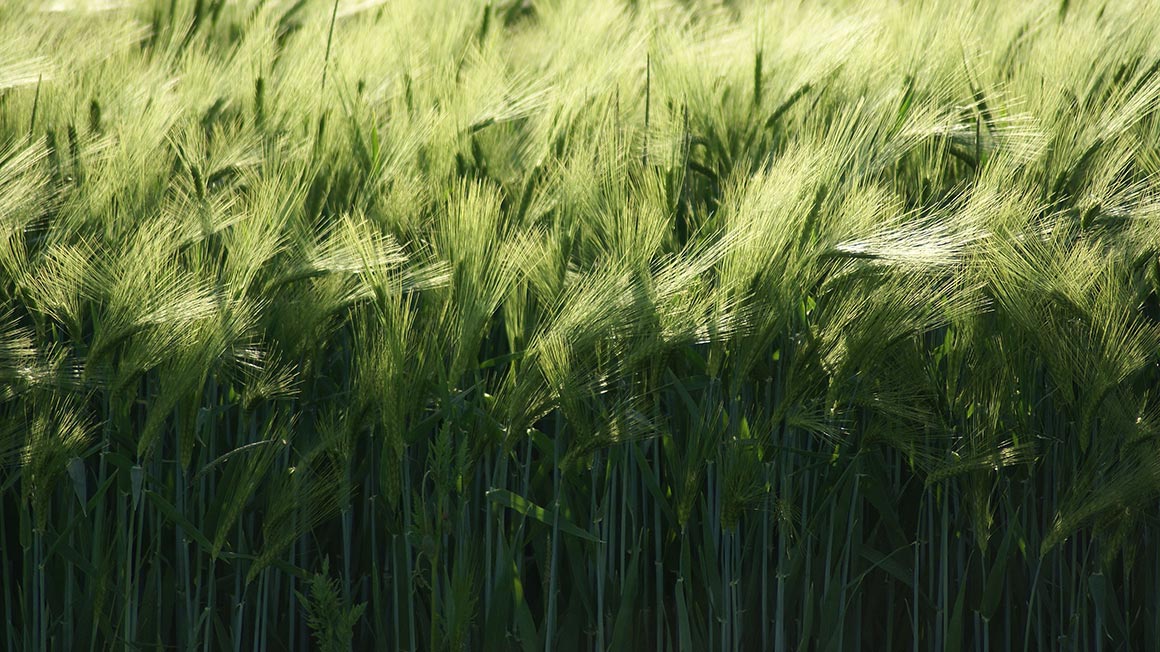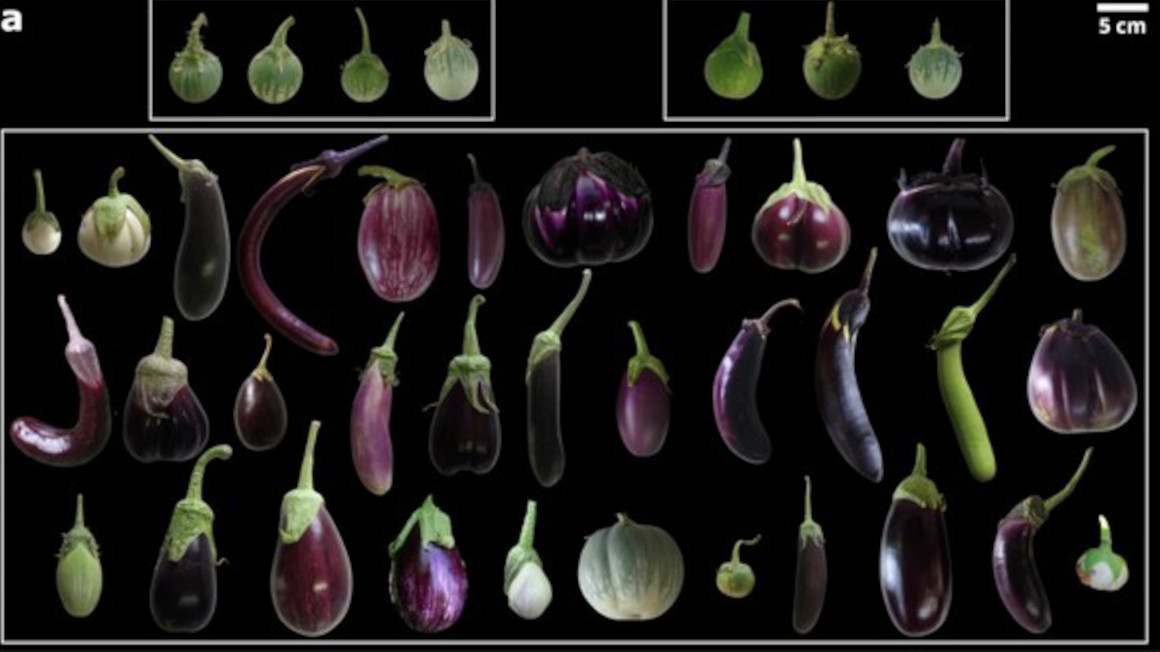
One in eleven people is undernourished. The main causes of this are distribution issues and how arable land is used, such as for producing animal feed rather than food. Against this backdrop, it is alarming that climate research predicts that ever fewer locations will offer optimal agricultural conditions. Plant breeders are therefore researching new varieties that can cope with drought or grow on saline soils, for example.
Many wild plants, including wild barley, thrive in salty conditions. “This gave us the idea that wild barley might harbour bacteria in its root zone that could also benefit cultivated barley in stressful conditions,” recalls Sylvia Schnell, a microbiologist at the University of Giessen. Barley is generally considered to be a grain that can be grown under suboptimal conditions and in poor soil. “Wheat is much more sensitive,” explains the researcher.
Focus on spring barley and winter wheat
This idea led to the BreadAndBeer project, which has received around one million euros of funding from the Federal Ministry of Education and Research over seven years. The project aims to improve the quality of these grains under unfavourable environmental conditions, which is important for beer production in the case of spring barley and for bread production in the case of winter wheat. “We chose these two grains because they are cultivated as part of typical crop rotations to prevent soil fatigue and pest infestation,” explains Schnell.
The first step was to test the hypothesis that salt-adapted plants, such as wild barley, harbour root bacteria that support plant growth. To this end, the research team isolated the relevant bacteria. After several greenhouse experiments, it became clear that the bacterium Hartmannibacter diazotrophicus can alleviate abiotic stress in barley and fix nitrogen, providing the plant with a natural fertiliser. “But in the greenhouse, we never got to the grain yield stage. That's difficult to achieve in small flower pots,” reports Schnell. Three years of field experiments followed.
Seeds inoculated with bacteria
On two organically farmed plots, the research team cultivated one of the two cereals in different configurations across 7.5 square metres of each plot. In some cases, the seeds had been pre-inoculated with bacteria in a solution. The bacteria were fixed to the seeds using a layer of gum arabic, a gum-like plant sap. An additional layer of talcum powder ensured sowing with a seed drill remained possible.
The first question was: Would the bacteria be able to compete with the natural soil microbiome? The researchers took regular samples to check for the presence of H. diazotrophicus. It was detected in winter wheat for 273 days and in spring barley for 119 days. “That gave us initial confidence, because that is a long time,” explains Schnell. Conversely, the studies also found that the new bacteria had no disruptive effect on the natural bacterial diversity in the root zone. “In organic farming in particular, you want to keep the system as natural as possible,” emphasises the microbiologist. In conventional farming, however, there are many disruptions anyway, for example from pesticides.

More straw and better grain
At the end of each growing season, the research team determined the yields of both the grain and the straw. They compared the plots where the seeds had been inoculated with bacteria with those where the plants had grown without inoculation to see if there were any differences. They found that inoculated plants grew slightly stronger if the plants were not fertilised. “This effect was significant in terms of straw yield, but not quite so much in terms of grain yield,” reports the project manager. However, this could also be due to the highly variable environmental conditions in the field, which make it difficult to make such a statistical statement.
Ultimately, however, farmers are interested not only in the quantity of grain, but also its quality. The price paid for wheat crops is determined by the crude protein content. The researchers therefore analysed the nutrient composition. In the inoculated wheat, the protein content increased significantly and correlated with the number of Hartmannibacter bacteria present on the roots. “This is a strong indication that the bacteria are responsible for the crude protein content,” Schnell explains. Project partners at the University of Hohenheim, working with Christian Zörb, analysed the proteins in more detail and found an increase in gliadins and glutenins after seed inoculation. The former improve dough volume and the latter improve dough elasticity. “Our project partners conducted baking tests with the harvested grain and confirmed that its baking quality improved after seed inoculation with bacteria,” says the researcher.
Summer barley also showed an increased protein content. “It was almost too high for brewing beer, because protein tends to interfere with the fermentation process,” reports Schnell. However, the starch and amylose content, which are important for brewing, were also higher due to the bacteria. “The more sugar there is, the better the alcoholic fermentation,” explains the project manager.
A better understanding of transferability and biological processe
The trial cultivation has now been extended to conventionally cultivated fields. In conjunction with results from other locations and weather conditions, the researchers will check for general validity. Will the effects also be present with fertilisation, pesticide treatment, and other soil condition?
The BreadAndBeer Project
The project 'BreadAndBeer: Production of wheat and barley with reduced input in organic farming', is part of the BMFTR funding measure, 'Plant roots and soil ecosystems: The importance of the rhizosphere for the bioeconomy (Rhizo4Bio). Justus Liebig University Giessen and the University of Hohenheim are involved. The Federal Ministry of Research, Technology and Space is providing around one million euros in funding from February 2020 to July 2027.
In addition, the researchers are now examining the interaction between plants and bacteria in more detail. For instance, what role does nitrogen fixation by bacteria play in enhancing grain quality? Lastly, laboratory tests will be conducted to determine whether Hartmannibacter improves tolerance not only to saline soils, but to drought stress as well. “We did have incredibly dry conditions in the field during the first year of cultivation,” Schnell recalls. “However, that was during the plants' initial growth phase, when the bacteria were unable to help.” The rest of the project will reveal whether drought during flowering or grain filling can be mitigated.
Author: Björn Lohmann


